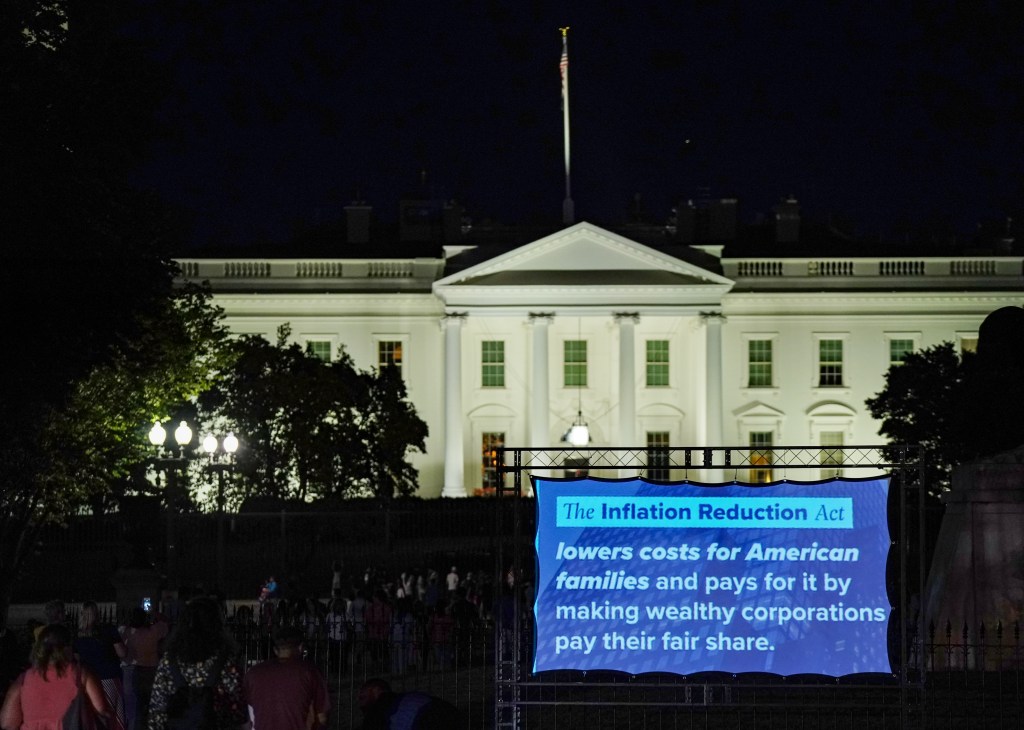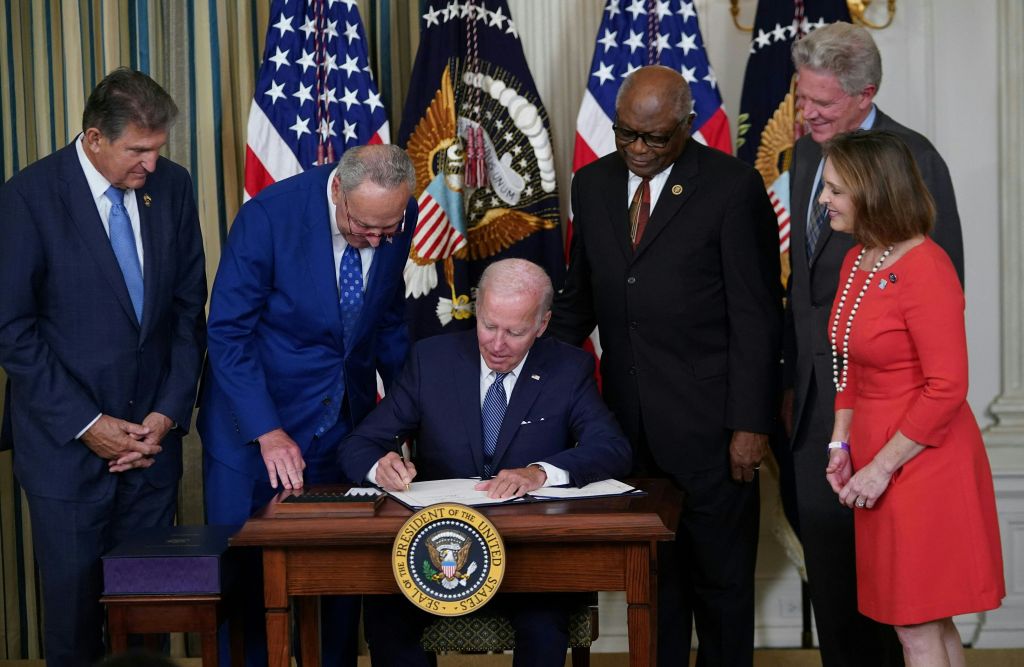Biden regrets calling spending bill Inflation Reduction Act
WASHINGTON — President Biden said during a fundraiser Thursday night that he regrets calling one of his major legislative achievements the Inflation Reduction Act — because the primary intent wasn’t actually to lower prices.
“I wish I hadn’t called it that because it has less to do with inflation than it has to do with providing alternatives that generate economic growth,” Biden said in Park City, Utah, noting that the bill primarily dealt with funding environmental programs.
Biden signed the law in August of last year, allowing the White House and congressional Democrats to say they were tackling decades-high inflation, which had peaked that June at an annual rate of 9.1% — even though both the Penn Wharton Budget Model and the Tax Foundation said at the time the bill would do nothing of the kind.
“Republicans were right all along,” tweeted Rep. Andy Biggs (R-Ariz.) in response to Biden’s comment.
The annual US inflation rate for July was 3.2% — up slightly from 3% in June, but down from 6.4% in January.
The Federal Reserve targets an annual inflation rate of around 2%.
So-called core inflation, which measures the price of all items minus food and energy, spiked 4.7% over the previous 12 months — with shelter (7.7% annual increase) the biggest driver.

Biden and Republicans have blamed different reasons for price spikes, with the GOP blaming large government spending bills and the Biden administration’s discouragement of fossil fuels.
The White House, meanwhile, has cited COVID-19 supply chain issues and the 18-month-old Russian invasion of Ukraine.
The 730-page Inflation Reduction Act committed $369 billion to environmental projects, $64 billion to extend more generous Obamacare health insurance subsidies, and $4 billion to Western wildfire resilience.


The legislation’s spending, at least in theory, was offset by new revenue — unlike Biden’s $1.9 trillion American Rescue Plan Act, which critics said worsened inflation after passing in early 2021.
Both bills had only Democratic support.
The Inflation Reduction Act’s projected revenue offsets include $222 billion over 10 years from a new 15% corporate minimum tax, $124 billion in new IRS revenue through stricter enforcement after an $80 billion investment in staffing, $74 billion from a new 1% stock buyback excise tax and $52 billion by extending a limit on how businesses can use losses to reduce taxes and $265 billion in savings by allowing Medicare to negotiate drug prices.
Read the full article Here


